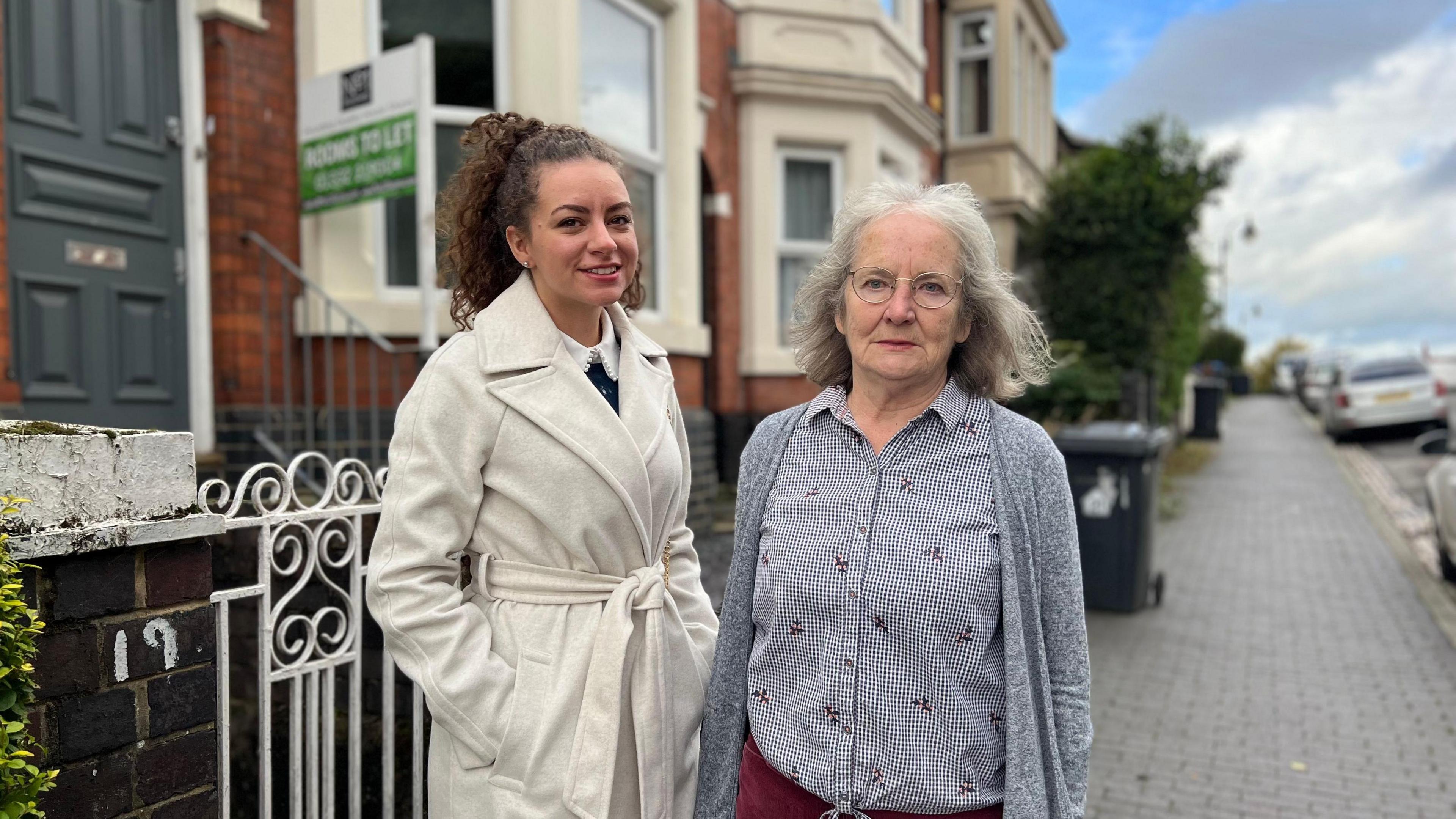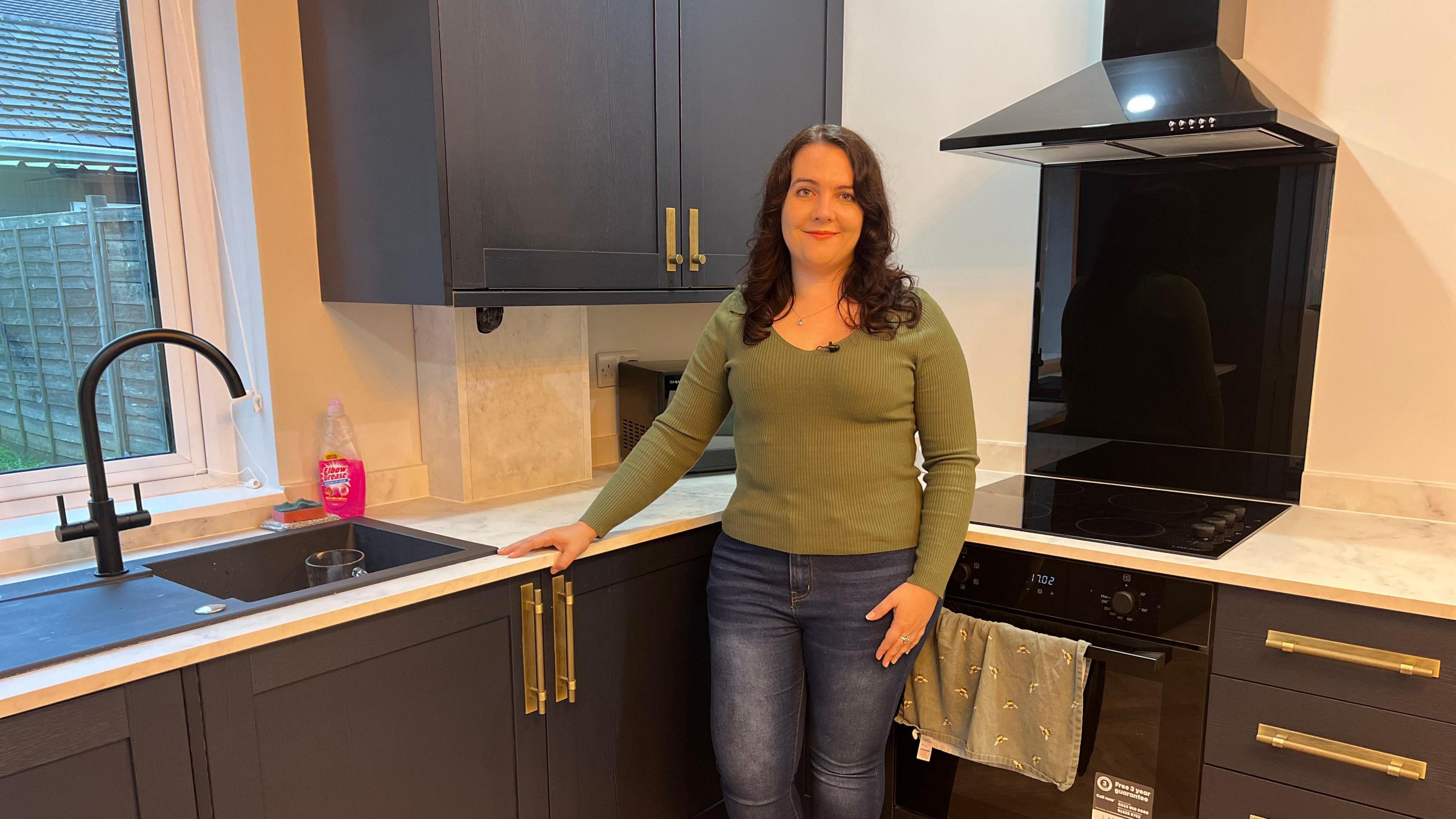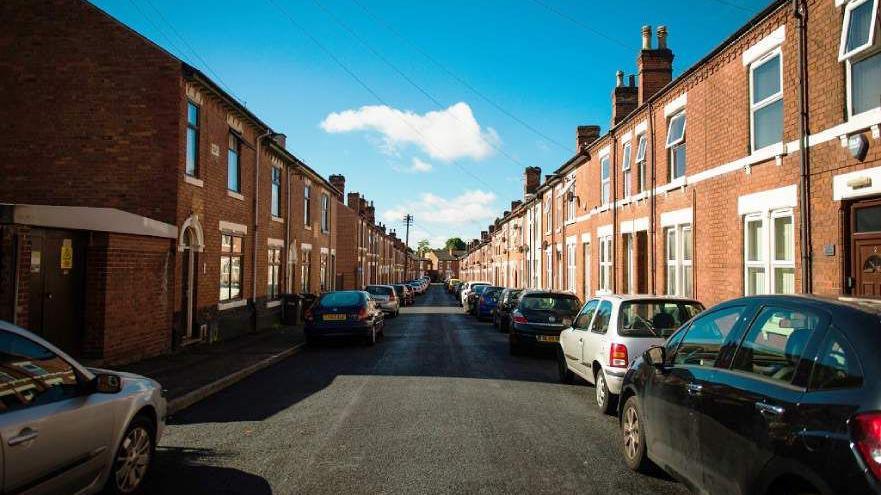Tighter rules approved for city's 'excessive' HMOs

Derby residents Sassi Stark (left) and Joan Dutton (right) have been calling for tighter rules for years
- Published
Derby City Council has approved plans to tighten the rules on houses in multiple occupation (HMOs) amid concerns about what council leaders have called their "excessive" presence in the city.
The new rules will mean landlords need planning permission to convert a small home for up to six unrelated tenants. Larger HMOs already need planning permission.
At a meeting on Wednesday, the council said just six of the 246 responses it had to a consultation were against the change.
The regulations will come into force in May 2025 and will cover most of the homes within the city's outer ring road, external, including the whole of the Arboretum ward and most of Normanton.
HMOs typically have private bedrooms, but shared facilities like kitchens and bathrooms.
Council leaders said they hoped the new rules - called an article four direction - would ensure better quality housing and the prevention of perceived issues such as anti-social behaviour, parking and environmental problems.
Speaking at the meeting approving the new regulations, cabinet member Alison Martin said the move was a "first step".
"We understand there's a dire shortage of houses but its really important all developments are balanced," she said.
"Some of these HMOs that have come forward... risk bringing on the slums of the future."
'Out of control'
Derby residents and campaigners Joan Dutton and Sassi Stark have been pushing the council to introduce tighter rules for HMOs for several years.
Joan Dutton, who lives in Strutt's Park, said houses put up for sale in her area were regularly bought by landlords who converted them into HMOs to rent out.
"They are taking up family homes and they are breaking up communities... and that has an impact on the area," she said.
"There isn’t the same responsibility to keep the area neat and tidy. It's altering the character of the area."
"You get landlords who are completely absent," said Ms Stark, an Arboretum resident, who said the number of HMOs in Derby was "out of control".
"Obviously there are some very good HMO landlords... but it can generally lead to a lot of anti-social behaviour in an area.
"It just seemed like HMOs were getting put through planning left right and centre."
The head of planning at Derby City Council, Paul Clarke, said at Wednesday's meeting that a "high concentration" of HMOs led to impacts on "anti-social behaviour and community cohesion".

Over 90% of the properties Oliver Ibbotson manages fall within the area where the new rules will take effect
Oliver Ibbotson is the managing director of Derby letting agency Houseshare Heroes, which specialise in HMOs.
More than 90% of his properties will fall into the new rules.
He said new landlords might struggle.
"They're probably going to have to spend anywhere between £3,000 and £7,000 in planning application fees to get their property through," he said.
Mr Ibbotson also said the new rules would not solve problems like anti-social behaviour and fly-tipping.
"I don't think [article four] is the solution to the problem," he said. "If they're going to bring something in it should probably be about more regulations or fines for [bad] agents and landlords.
"What I would suggest is: target those properties and those streets and areas where it's quite bad, like the city centre... trying to find those rogue landlords that just don't care... instead of doing a blanket thing like article four."

HMO landlord Alice Garnett finished renovating her third property in the city in May
Leicester and Nottingham have had article four directions in place for more than a decade.
Alice Garnett owns three HMOs in Derby, having spotted an opportunity in the city due to its looser restrictions.
However, she said she had sympathy for tightening the rules.
"I've seen the prices of those starter two and three-bedroom houses skyrocket by 30%, even 50% on some streets," she said.
"If you are a first-time buyer, that's going to put that dream of owning your own home out of reach."
But she said the negative stereotypes around HMOs were "old-fashioned" and did not reflect all properties which fall into the category.
"Poorer quality HMOs don't get tenants, whereas higher quality HMOs full of working professionals [are] boosting the local economy," she said.
"They're not causing trouble, they're benefitting the community."
Get in touch
Tell us which stories we should cover in Derby
Follow BBC Derby on Facebook, external, on X, external, or on Instagram, external. Send your story ideas to eastmidsnews@bbc.co.uk, external or via WhatsApp, external on 0808 100 2210.
Related topics
- Published4 April 2024
